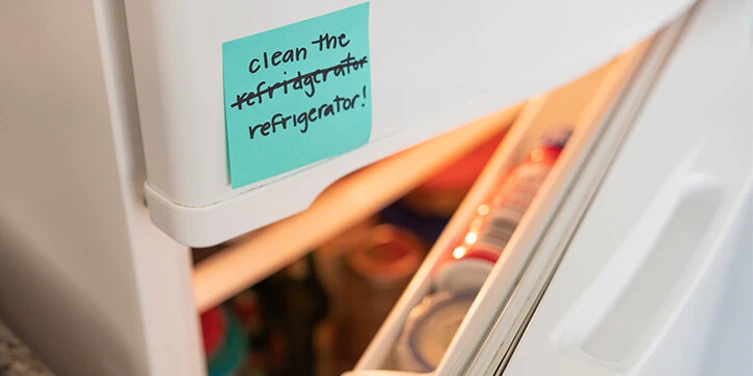Why Is There a D in Fridge but Not in Refrigerator?

The English language is full of oddities and inconsistencies that don't always make sense and periodically result in unusual spellings or pronunciations. While this can make English a difficult language to learn, even those who are fluent may find themselves searching for answers every now and then or relying on spellcheck for assistance. The appliance world is no exception when it comes to these spelling anomalies, and if you've ever wondered why is there a "d" in "fridge" but not in "refrigerator", you're not alone. The team of skilled professionals at Mr. Appliance® is pleased to provide you with an explanation for this and many other eccentricities associated with the English language.
Spelling Refrigerator
While the concept of artificial refrigeration was first introduced in 1748 by Scottish professor William Cullen and the first working models developed nearly a century later, the words refrigerate, and refrigerator can be traced back to the early 1600s. The word refrigerator originates from the Latin verb refrigerare which was derived from the Latin adjective frigus, meaning cold.
As is the case with many multi-syllable words, as this household appliance gained popularity an abbreviated version was born, and as early as 1920 the word "frig" can be found in written publications—although it is likely to have been used in spoken language much earlier. Since both the technology and the jargon were relatively new it was up to those writers to determine its spelling, and it is most likely that the word was changed from "frig" to "fridge" in order to mimic the spelling of similar words that had the same sound, such as bridge, ledge, dodge, fudge, and more.
Fridge Care and Maintenance
You probably don't give much thought to your refrigerator until it starts to under-perform, or it breaks down. Fortunately, you can avoid both of these scenarios and many major repairs by performing these maintenance tasks that take just minutes out of your day:
Clean the fridge.
A refrigerator that is neglected will often cost more to operate, may be too warm or too cold, and may begin to emit an unpleasant odor. Routine cleaning of the interior and exterior will solve most issues while increasing efficiency, and should include the following steps:
- Vacuum the condenser coils located at the lower front portion of the fridge or on the back.
- Wipe the door gasket using a damp cloth.
- Defrost the freezer if needed.
- Empty and wipe out the interior of the fridge.
Adjust the temperature setting.
Set your refrigerator to the middle of the dial on the thermostat, adjusting it slightly up or down as needed, aiming for an optimal temperature of between 37 and 40 degrees Fahrenheit for the fridge and 0 degrees for the freezer.
Clear the freezer vents.
Locate the air vents in your freezer and ensure they are unencumbered by food or debris, in order to promote proper circulation.
Dispose of your old appliances responsibly.
Even the most well-maintained appliances won't last forever, and the average lifespan of a refrigerator is anywhere between 14 and 17 years. When it comes time to replace your old refrigerator with a new appliance there are a number of environmentally friendly ways to dispose of it.
 Click to call
Click to call


